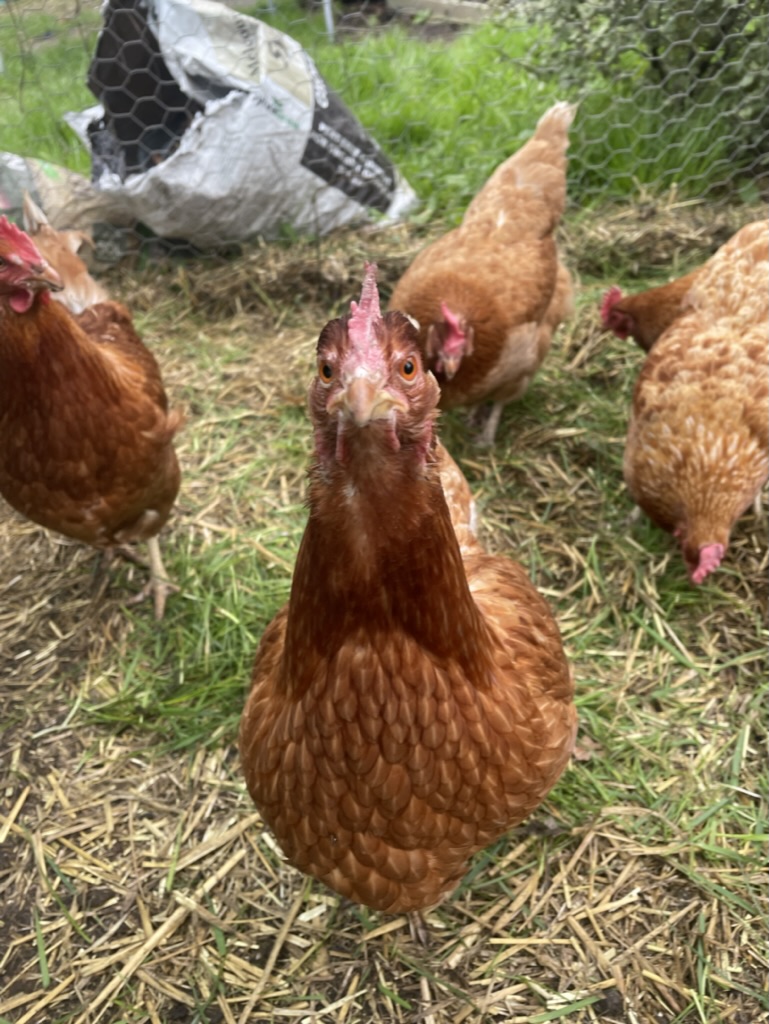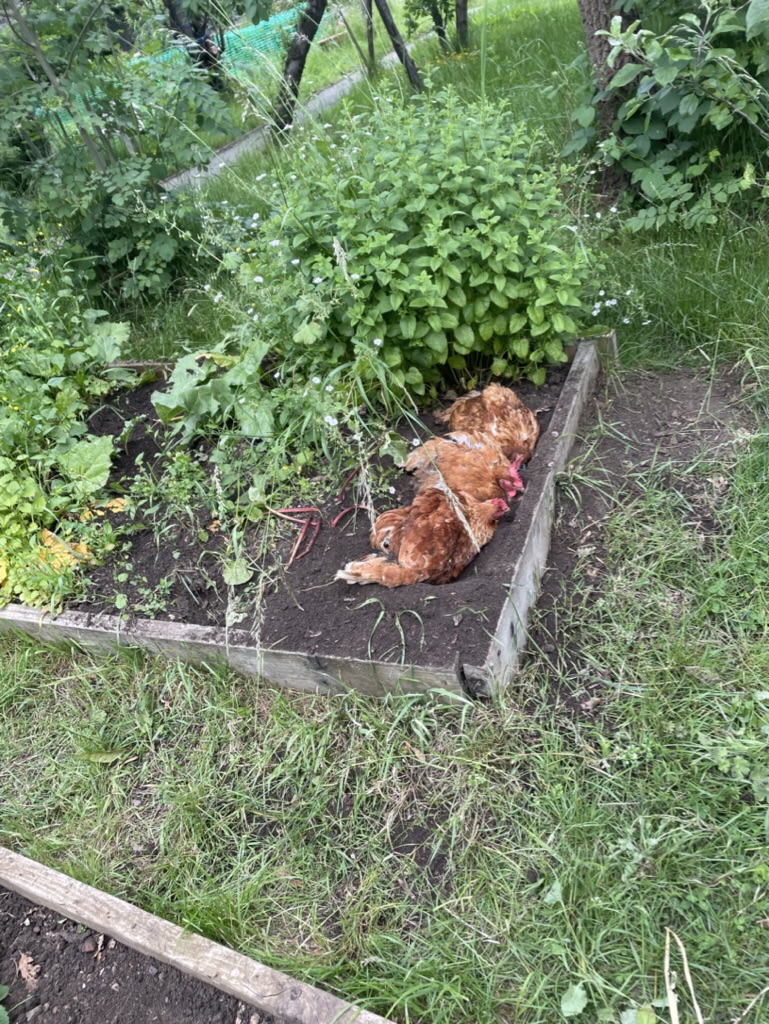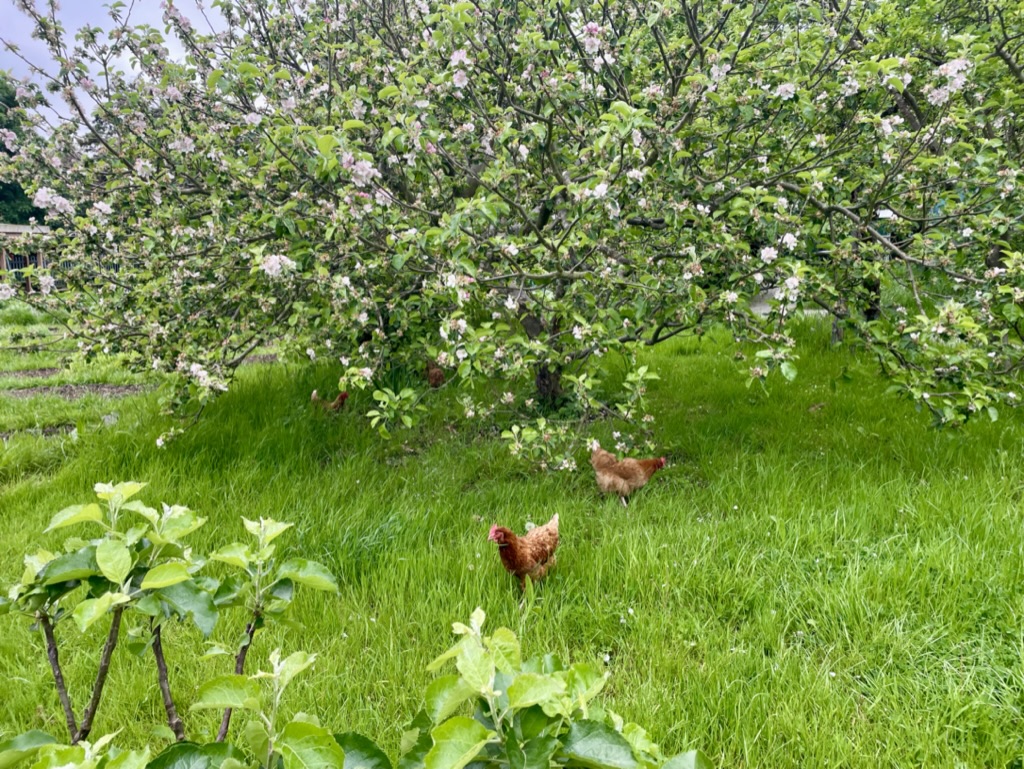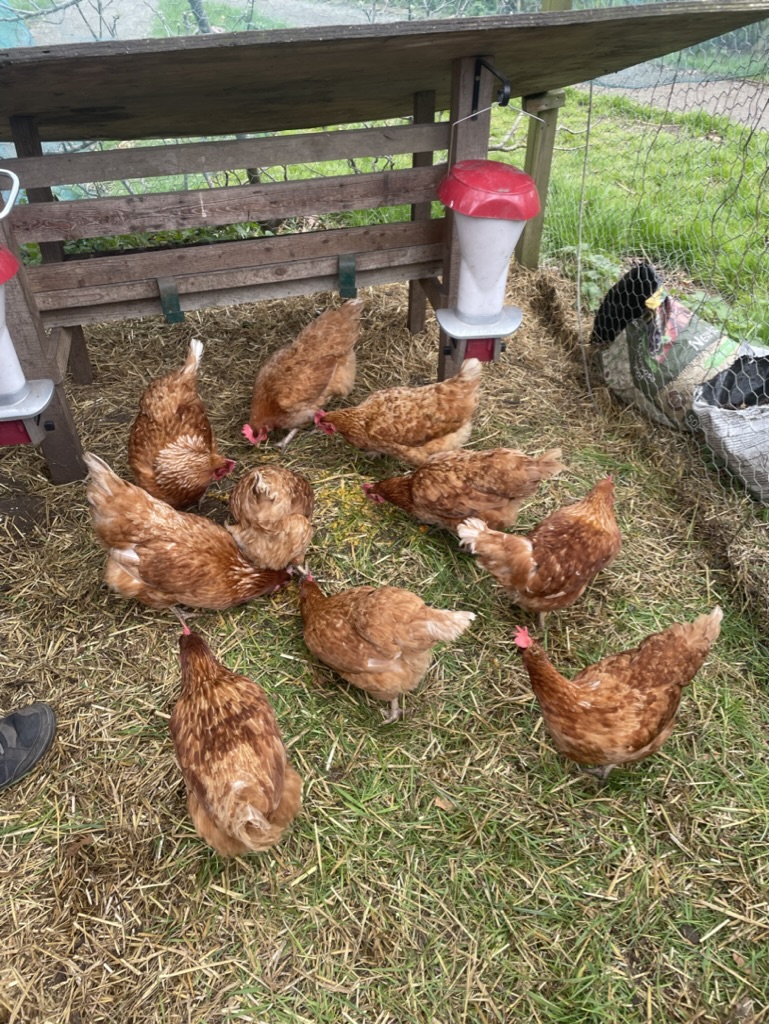Rescue chickens make the perfect allotment companions

On allotments up and down the country, people are flocking to keep chickens. During the first COVID-19 lockdown in 2020, chicken rescue charities and chicken sellers ‘sold out’ of hens. This increased interest in hens was due to perceived food scarcity at the sight of empty supermarket shelves as well as fears over contaminated food, but also because people who had been wanting to keep hens now had the time to do so.
However, people aren’t just keeping hens for eggs, although, for many, food provenance is part of the equation. Living with chickens has educational potential, enhances wellbeing and strengthens connections with nature, as well as having reported benefits for mental health and wellbeing. With many backyard chickens being rehomed from commercial farms, keeping rescue chickens can create a site of liberation and freedom in the ‘retirement’ of these exploited birds.
History of Chickens and Allotments
Contemporary allotment-keeping is usually focused on cultivating, growing and harvesting plants, with an emphasis on fruits and vegetables. But chickens aren’t recent additions to these plots. In fact, hens (but not cockerels) have long had an important role on allotments. The allotment chicken is entangled with the history of the allotment as an integral part of British society and history.

The British allotment system of today has its roots in the nineteenth century, when land was given to the working classes to enhance food provision. During both world wars, chickens were important parts of the ‘Dig for Victory’ campaigns. Fed with scraps, chickens were touted as ‘turning waste into food’, but also fertilised the soil through scratching to enhance vegetable growth. Post-war, the ‘allotments for heroes’ scheme gave small plots to veterans, many of whom continued to keep chickens. The 1950 Allotment Act made hen-keeping an allotment holder’s right, making these birds an integral part of the allotment community.
From 1960 onwards, allotment chicken-keeping became less popular as there was a steady decline of interest in allotments. As life sped up and food systems intensified, many allotment sites were lost, with fast, cheap food becoming a priority in a changing world. However, the 2000s ushered in a revolution for allotments, with demand exploding for these spaces that provided sustenance, leisure and community.
The history of allotment chickens is a difficult one for vegans, with the widespread exploitation of these remarkable birds. But, just like soil health, food provenance has been a concern of The Vegan Society since its inception. Today, some people are marrying a concern with the land with rescuing animals on vegan allotments, with incredible outcomes.
Therapeutic Hens
Throughout history, chickens have been part of the allotment as food producers. But, with stark numbers of chickens being killed in the egg industry, vegan interventions in this process can offer retirement to hens, benefits to the land, and enhance the lives of chickens and humans alike.

Keeping chickens has recently been found to have therapeutic benefits and to enhance the wellbeing of the most vulnerable in society, adding to the benefits of horticultural therapy that allotments already offer. A psychiatric ward in Dartford promoted their flock of chickens’ work ‘as a therapeutic tool in care settings for people struggling from anxiety, depression, isolation and loneliness’. In 2019, the BBC reported from Rainbow Horses in Leicestershire, who promote the use of chickens to help autistic children in their education, endorsing chickens as teaching ‘trust and empathy’ while ‘learning at their own pace’. In 2011, in Gateshead, a lottery-funded project called HENPOWER brought hens to older people’s communities, finding significant benefits for self-reported wellbeing and emphasising the importance of the establishment of hen flocks as a ‘community-based activity’.
Vegan Chicken-Keeping
These narratives of keeping chickens for the express purpose of enhancing human wellbeing are in tension with veganism, much like pet-keeping. For vegans, chickens are akin to companion animals, with the wellbeing benefits a happy accident rather than an express purpose.
For the past six months, I have been volunteering at an allotment community in London: a therapeutic garden with a flock of 12 hens. These hens sometimes participate in horticultural therapy for people recovering from mental and physical illnesses, although nothing is demanded of them. In the gardens, success isn’t measured by the opening of a flower, of perfectly planted beds, or an abundance of eggs. Instead, it’s about learning, about being together, about connecting in (and with) nature. The garden puts people in a setting that invites engagement and allows people to follow and interact with the world and one another in new ways. Chickens peck at feet, scratch in the dirt and encourage conversations, becoming part of the community.
Chickens as allotment companions offer much more than eggs could: they are enhancing human lives and, on the vegan allotment, we are also seeing chicken lives flourish. If you are an allotment holder and are considering chicken adoption, please check out the advice below.
Top Tips for Keeping Rescue Chickens
- If you are interested in rehoming chickens on your allotment, check out the British Hen Welfare Trust to see when hens will be available in your area. Smaller organisations such as Fresh Start for Hens are also operating in many places around the UK.
- Ex-commercial chickens often suffer with diseases related to egg production. Some vegan keepers choose to have their chickens implanted with Suprelorin to prevent egg-laying and reduce the risk of these diseases.
- If you don’t want to implant your hens, keep an eye out for signs of pain. Chickens are prey animals and try to hide pain until it is too late. Fresh Start for Hens provide information on some of most common health concerns and how to treat them. There are also regular hen-keeping courses run by the British Hen Welfare Trust and other local organisations.
- Sadly, restrictions on keeping cockerels are far more common than those on keeping hens. Be sure to check your allotment rules before adopting a cockerel!
- Chickens are still regularly treated as livestock in veterinary healthcare, which can lead to euthanasia being the most common recommendation for sick birds. This map of chicken-friendly vets should ensure your hens receive the best treatment possible.
Dr Catherine Oliver is a social and cultural geographer and a member of The Vegan Society’s Researcher Network. Catherine’s research on Chicken Keeping during the Covid-19 pandemic is published in the Animal Studies Journal.
Grow Green
We’re celebrating National Allotments Week as part of our Grow Green campaign. Transformation of our food system must happen at every level, from the carrots in your back garden to the farmers that grow our beans and cabbages, and the national and international policies which influence how all our food is produced. Through the Grow Green campaign, The Vegan Society advocates for a planet friendly, vegan farming system. We push for better farming policies to support those who grow plant proteins and vegetables and share knowledge on the transition to animal free farming. Find out more on our Grow Green campaign pages.
The views expressed by our bloggers are not necessarily the views of The Vegan Society.

